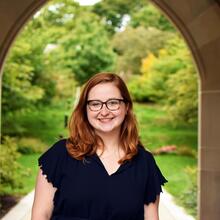A Reflection for Saturday of the First Week in Ordinary Time
Find today’s readings here.
“Those who are well do not need a physician, but the sick do.
I did not come to call the righteous but sinners.” (Mk 2:17)
Who gets to decide who is in need? And who gets to decide how those people should have their needs fulfilled?
“Why does he eat with tax collectors and sinners?”
This last question is the one that Jesus’ detractors ask in today’s Gospel passage from Mark. They are baffled that Jesus not only asks a tax collector, Levi, personally to follow him, but also that he sits around the table with so many others when they join him and his disciples in Levi’s house.
What’s the problem with tax collectors anyway? A footnote on this reading from the U.S. Conference of Catholic Bishops’ site provided helpful context that brought their social role and status more clearly into view for me. It has to do with a detail in Mark’s first description of Levi; rather than naming him directly as a tax collector, Mark describes him “sitting at the customs post.” The footnote explains:
“Such tax collectors paid a fixed sum for the right to collect customs duties within their districts. Since whatever they could collect above this amount constituted their profit, the abuse of extortion was widespread among them. Hence, Jewish customs officials were regarded as sinners (Mk 2:16), outcasts of society, and disgraced along with their families.”
Levi is not a popular guy, and this context helps you understand why: He’s taking advantage of people. The detractors in this Gospel have trouble empathizing with him, with seeing him as a worthy person with whom to sit around and share a meal and chat into the night, because they clock his sins against people, even vulnerable people.
And I can understand that. I can relate to it.
Jesus’ response to them is about the question of need, and of how to determine which needs must be urgently met: “Those who are well do not need a physician, but the sick do. I did not come to call the righteous but sinners.”
Jesus is testing the limits of their, and our, empathy. Are we only willing to relate when we see someone as sinless? Are we unwilling to see sinners not as evil, but as spiritually needy? Jesus’ answer to spiritual need in Mark’s Gospel is simple: spending time.
People will sometimes be unpleasant to be around. They’ll even do bad things. The reasons for their social pariah status might be because, at least in part, of those bad things. The challenge we need to accept is this: That doesn’t mean they’re not worthy of God’s time and attention. And if they’re worthy of God’s, they’re worthy of ours.
Perhaps something we can work on is developing a keen sense of who is in need, and how. Who is in material need, and who is in spiritual need? How can we as Christians respond to both?








